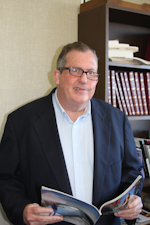Career satisfaction survey, part 2: What role does burnout play in dental hygiene?
Technically, the definition of burnout refers to a “physical or mental collapse caused by overwork or stress.” Obviously, the profession of dental hygiene would capture national attention if a quarter of its members suffered from this type of duress.
The RDH eVillage career satisfaction survey, which received responses from 2,105 dental hygienists, asked its readers, “To what extent do you have feelings of professional burnout about your career.”
Nationally, dental hygienists answered by clicking on one of these possible answers:
- No such feelings, 11%
- Rarely have these feelings, 23%
- Sometimes have these feelings, 38%
- Often have these feelings, 21%
- Always have these feelings (significant burnout), 7%
----------------------------------------
Click here to read the first article about the career satisfaction survey
Staying positive, most dental hygienists remain bullish about their profession
----------------------------------------
Psychology Today’s definition of burnout does not necessarily refer to a “collapse.” The Psychology Today website elaborates by stating: “The cynicism, depression, and lethargy of burnout can occur when you're not in control of how you carry out your job, when you're working toward goals that don't resonate with you, and when you lack social support.”
Many dental hygienists do report stress from coping with the above factors. This article breaks the national statistics above into various demographic breakdowns, starting with age.
Age:
- 35 or under: 31% often feel burned out
- Ages 36-45: 33% often feel burned out
- Ages 46-55: 29% often feel burned out
- Ages 56 and older: 24% often feel burned out
Note: Longer years of service is often associated with feeling burned out about job. In the case of dental hygiene, however, it appears the challenge is the weather the early years and hoping the feelings diminish over time.
Patient load per day:
- Under six patients: 24% often feel burned out.
- Seven to nine patients: 25% often feel burned out.
- 10 to 12 patients: 36% often feel burned out.
- More than 12 patients: 40% often feel burned out.
Note: Obviously, an increased workload contributed to burnout. Fortunately, 69% of dental hygienists treat seven to nine patients a day.
Perceptions about appointment lengths
- 15% of dental hygienists who believe they have “all the time I need to provide the highest standards of care” report they often feel burned out.
- 27% of dental hygienists who think they are “sometimes too limited” with appointment lengths report they often feel burned out.
- 50% of dental hygienists who think they are “often too limited” with appointment lengths report they often feel burned out.
Note: Half of dental hygienists who believe time spent with patients is not enough are likely to feel burned out. If you’re curious, 45% of dental hygienists think appointments are sometimes too limiting, and 35% believe they have enough time scheduled for appointments. So we’re referring only to a minority here.
Number of dental hygienists in an office
- If they are only hygienists, 28% report often feeling burned out.
- If one other hygienist is on the staff, 26% report often feeling burned out
- If two other hygienists are on the staff, 29% report often feeling burned out.
- If three other dental hygienists are on the staff, 28% report often feeling burned out.
- If four or more other dental hygienists are on the staff, 28% report often feeling burned out.
Note: The curiosity here is whether isolated dental hygienists with limited peer interaction experience a higher level of burnout. It would appear that this factor is insignificant.
Team support
- 53% of dental hygienists who think the dental team is unsupportive of each other often experience feelings of burnout.
- 26% of dental hygienists who think the dental team is supportive of each often experience feelings of burnout.
Note: Admittedly, this question focused on the top objective of dental offices, treating patients. It did not consider team members who don’t clean up after themselves in the breakroom, or are too flirty with patients. The upshot, though, is that teamwork matters, and 94% of dental hygienists believe they are on teams that are supportive of each other in delivering care.
Recommend the profession as a career
- 87% of hygienists who do not often experience feelings of burnout would recommend the profession as a career option for young people.
- 49% of hygienists who often experience feelings of burnout would not recommend the profession as a career option for young people.
Note: Obviously, the more burned out you are the less likely you’ll recommend the experience to someone else. What’s more significant here is that the 51% of the hygienists who decline to endorse a career in the profession are not experiencing burnout. So other factors are influencing the mindset of this 18% of the dental hygiene profession.
ADHA membership
- 22% of dental hygienists who belong to a professional association such as the American Dental Hygienists’ Association say they often feel burned out.
- In comparison, 29% of nonmembers say they often feel burned out.
Note: ADHA members are less likely to experience burnout. But see the following statistics before determining an opinion. Overall, it appears that the networking encouraged via ADHA membership offers a slight advantage in warding off burnout.
Active interaction with peers
- 22% of dental hygienists who are active report feelings of burnout.
- 29% of dental hygienists who are inactive report feelings of burnout.
Note: The related question focused on attendance at local association meetings or study clubs. Obviously, there are other ways for dental hygienists to interact with each other. The concern here was to determine if professional isolation is a factor. A “little bit” is the appropriate answer.
Burnout rate in state where practicing
1. Massachusetts, 16%
2. Colorado and Indiana, 20%
4. Oregon, 21%
5. Minnesota, 23%
6. Michigan, 24%
7. Texas and Virginia, 26%
9. Arizona, California, and Wisconsin, 27%
12. New Jersey, 29%
13. Pennsylvania, 31%
14. Illinois and New York, 32%
16. Washington, 34%
17. Georgia, 36%
18. Florida, 37%
19. Ohio, 40%
Note: Hygienists in 19 states provided 40 or responses to the survey. The above is a top to bottom ranking of states where burnout is often experienced.
Comments
Note: Based on preceding ranking of states, we searched the comments from hygienists in Massachusetts, Colorado, Georgia, Florida, and Ohio.
- Colorado: “I have been practicing dental hygiene for 40 years and still love it! It all depends on what you want to put into it.”
- Massachusetts: “I've been an RDH for 49 years and love going to see my "friends" every day. Other than the physical hazards (back, neck, etc.), I find my career fulfilling. Time to accomplish all that I need to do for each patient is not available and a bit frustrating.”
- Florida: “I have been a dental hygienist for 30 years. I am appalled at the metamorphosis that the dental profession has taken. My dentist retired, and we were bought out by a corporation. It's only about the money, and patients sense this. I would never have thought this when I worked in private practice, but now I wish I never had entered this field.”
- Georgia: “I have worked for the same dentist for 18 years. In that time, I have lost benefits such as health insurance and bonuses. He is constantly obsessed with how much money he can squeeze out of us, while resenting the salary he pays us. I hate my job, and even the close bond I have with my patients no longer seems like enough. As soon as my family is in the position for me to quit, I'm leaving with no notice.”
- Ohio: “Corporate dentistry is taking over, and it is all about production, not patient care.”








